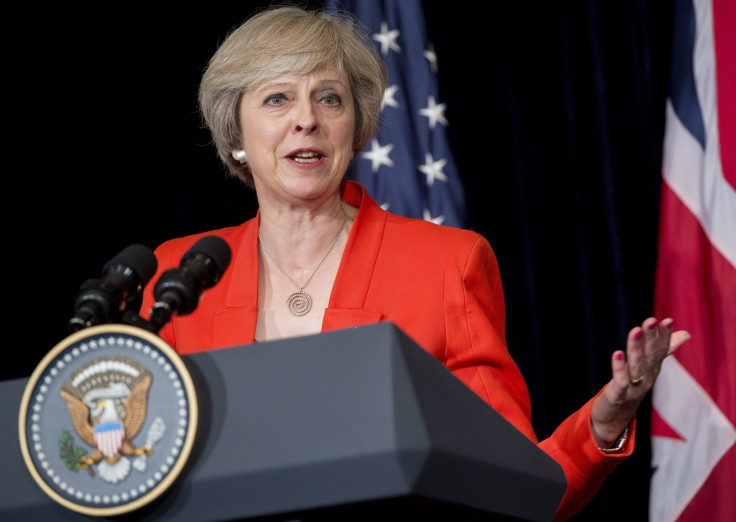Theresa May Pushes For New Trade Relations Post Brexit At G-20 Summit

Following Britain’s decision to leave the European Union, Prime Minister Theresa said Sunday that she intends to seize new trading opportunities for the post-Brexit Britain.
During the ongoing Group of 20 summit in Hangzhou, China, May met U.S. President Barack Obama where both leaders reaffirmed that the “special relationship” between the U.S. and U.K. would not be affected by Britain’s decision to leave the EU.
However, Obama maintained that the U.K. would have to wait for fresh negotiations for trade relations between the two countries as the U.S.’s current focus was to finish trade deals with Asia-Pacific and the European Union. Meanwhile, he said Britain was “figuring out what Brexit means with respect to Europe.”
The president promised to work closely with May, who took office in July after David Cameron resigned, to avoid “adverse effects” in the countries’ trade relationship.
Cameron had been an advocate of staying within the EU and announced his resignation after his camp lost out to the “leave” campaigners led by the likes of Boris Johnson and Nigel Farage. Following her election, May faces the responsibility of facilitating a break off without adversely affecting Britain’s trade and diplomatic relations.
“There will be no second referendum, no attempt to turn the clock back, no attempt to try to get out of this,” May told reporters on the sidelines of the summit, putting an end to any speculation regarding a backtrack from the results of the referendum. “The U.K. will be leaving the European Union.”
The government, however, has not formally invoked Article 50 — the EU treaty departure clause — which would start a two-year countdown for country’s exit. Britain is currently in the process of working out what its relations with the EU would look like and hastening the process could adversely affect the country’s objectives.
European Council President Donald Tusk also spoke at a separate news conference shortly after May where he maintained that the future relationship between the two blocs would only be negotiated after the British government formally invokes Article 50.
“We need to protect the interests of the members of the EU that want to stay together, not the one which wants to leave,” Tusk reiterated, according to the Associated Press.
© Copyright IBTimes 2024. All rights reserved.





















